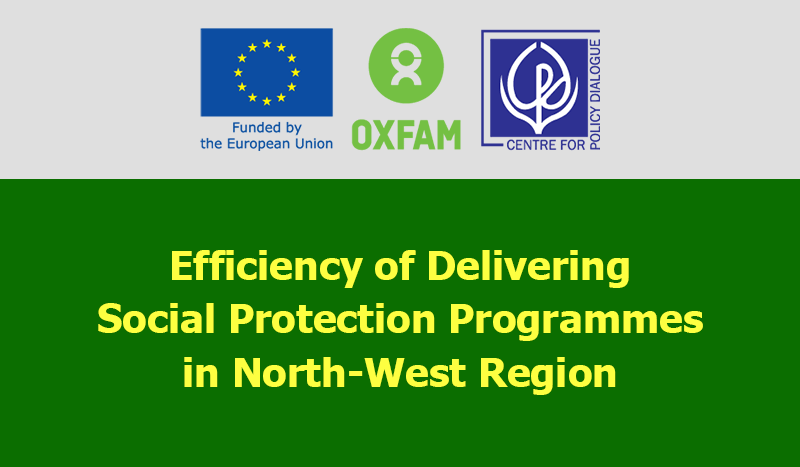
Social safety net programmes (SSNPs) are key enablers to attain basically all the SDGs at the country level. Increased collaborative effort and coordination amongst the grassroots, government representatives and government officials are essential to ensure the efficient delivery of the SSNPs. Alterations in the local-level power dynamics via increasing citizen’s engagement are particularly relevant to this end.
These observations emerged from a virtual national dialogue titled “Efficiency of Delivering Social Protection Programmes in North-West Region”, held virtually on 16 September 2020. This event was organised jointly by Centre for Policy Dialogue (CPD) and Oxfam in Bangladesh, in association with Citizen’s Platform for SDGs, Bangladesh, under an ongoing project titled ‘Enhancing the participation of community-based organizations (CBOs) and civil society organization (CSOs) in democratic governance in Bangladesh’, supported by the European Union.
httpv://www.youtube.com/watch?v=rFIZcQrj3UU
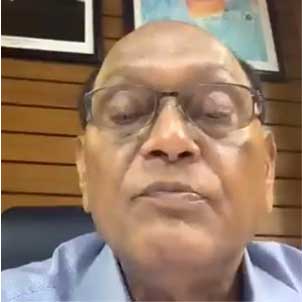
The dialogue spotlighted the efficiency of delivery mechanism of five selected SSNPs in Bangladesh – maternity allowance, primary school stipend programme (PESP), secondary school stipend programme (SESP), employment generation programme for the poorest (EGPP) and old age allowance. Four poverty-stricken districts, viz. Gaibandha, Kurigram, Nilphamari and Rangpur, from the North-West region of Bangladesh were covered to this end.

Mr Towfiqul Islam Khan, Senior Research Fellow, CPD, made the keynote presentation. He pointed out a number of limitations pertaining to the SSNPs that include, among others, inadequacy of allocation and coverage, mis-targeting, leakages, coordination failure among the implementing agencies, absence of proper information dissemination mechanism, irregularities in beneficiary selection, and lack of awareness about the grievance redress system.
According to the Household Income and Expenditure Survey (HIES) 2016 data, among all the households receiving SSNP assistance, about 65.6% were from the non-poor category. Only 32.5 per cent poor households received some form of assistance from SSNPs while 19.8 per cent among the non-poor households were included in such programmes. He concluded by putting up recommendations to finalise the National Household Database, revisit the currently operational centralised online grievance redress system to make it more inclusive, build awareness and engage local citizens and non-state actors in programme implementation, encourage and institutionalise independent monitoring at the local level led by general citizens and transform the implementation process of SSNPs from a supply driven approach to a demand driven one.
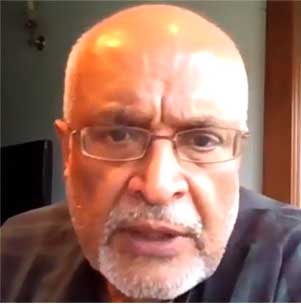
Mr A B Tajul Islam, Member of Parliament, and Chairman, Parliamentary Standing Committee on Ministry of Disaster Management and Relief, made remarks as the Special Guest of the dialogue. He focused on the needed changes in the areas pertaining to beneficiary database, infrastructure, sincerity of government officials, and the sense of patriotism to curtail irregularities in the selection process.
H E Ms Rensje Teerink, Ambassador and Head of Delegation, Delegation of the European Union to Bangladesh, the other Special Guest of the event, highlighted the European Union’s (EU) contribution to social protection in Bangladesh. She mentioned that, in the years to come, EU has identified two flagship programmes to be implemented in Bangladesh. One of them is related to decent work, which encompasses social protection among other factors. She underscored the perspectives of the CBOs that the SSNPs should be made as inclusive as possible and stressed on how service delivery needs to be efficient and transparent.
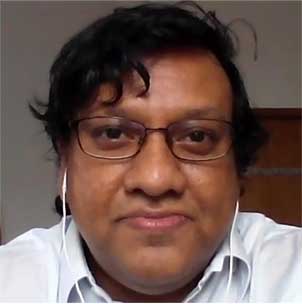
Dr Debapriya Bhattacharya, Distinguished Fellow, CPD, and, Convenor, Citizen’s Platform for SDGs, Bangladesh, presented a summary of the discussion at the session. He mentioned that although the government has allocated more in assistance than before, it is still insufficient to relieve the challenges people face. Government’s contribution is very important here as the market economy cannot alleviate the situation. He mentioned that as the allocation for the poverty-stricken people is insufficient, enhancement of institutional capacity is much needed. In addition, he mentioned how the triangulation of budget management, inclusion of grassroots and digital transfer is significant in improving the efficiency of SSNPs. Dr Bhattacharya concluded by saying that alterations in the local-level power dynamics are critically important. This can be achieved by combining the CSO/CBO/NGOs and media with the local government authorities.
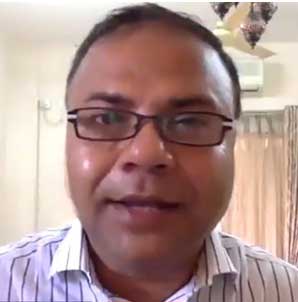
Dr M Abu Eusuf, Professor, Department of Development Studies, University of Dhaka, attended the event as a Designated Discussant. He put emphasis on the database issue with the view that operationalising this database will help reduce the targeting errors. He also mentioned that the social protection budget management unit, which is being delayed due to COVID-19, will be helpful when implemented. In addition, he talked about the necessity of paying more attention on the urban poor besides the rural poor.
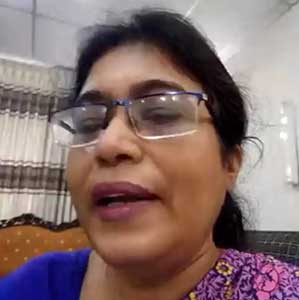
Attending the dialogue as a Guest of Honour, Ms Parveen Akhter, Director General, Department of Women Affairs, Ministry of Women and Children Affairs, Government of Bangladesh, agreed with the local level participants that the beneficiaries often do not receive the government’s targeted benefits and expressed her optimism towards closing this gap.
Dr Fahmida Khatun, Executive Director, CPD and Dr Dipankar Datta, Country Director, Oxfam in Bangladesh, made introductory remarks at the dialogue. Dr Khatun emphasised on how importance of social protection has increasedin view of the ongoing COVID-19 pandemic. While mentioning the challenges in implementation and delivery of the social protection programmes, Dr Khatun suggested that the list of beneficiaries should be such that the social protection programmes reach the poorest of the poor. Dr Datta suggested that linking together various social protection schemes can enhance their respective effectiveness and consequently, add value to the most destitute people.
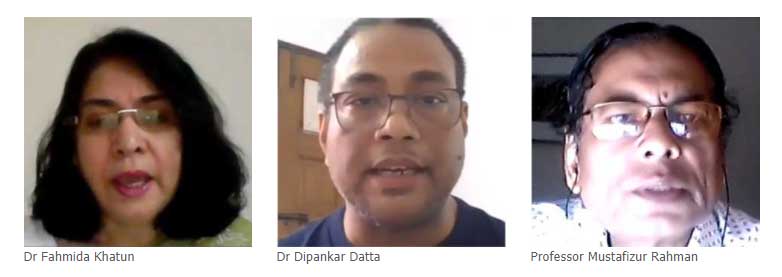
Professor Mustafizur Rahman, Distinguished Fellow, CPD chaired the event. Dr. Khondaker Golam Moazzem, Research Director, CPD, was also present at the event.
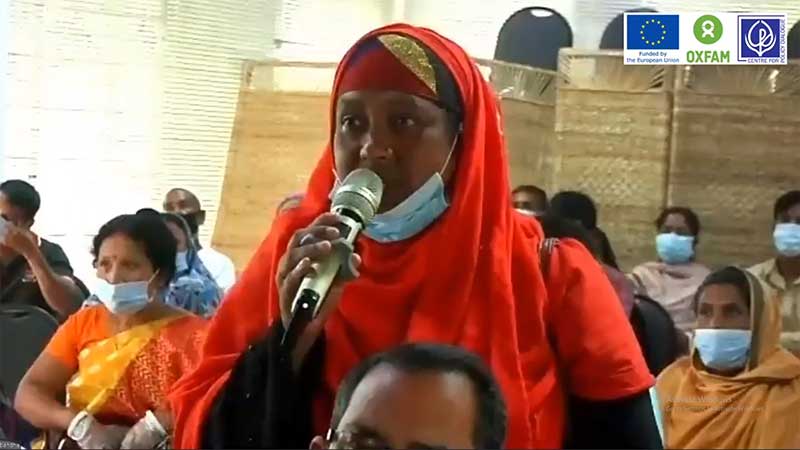
Around 120 representatives from local level organisations in Rangpur, Nilphamari, Kurigram and Gaibandha joined the dialogue virtually and shared the experiences at the grassroots level. Government officials, local government representatives, academicians, development workers, NGO representatives, CSO representatives, and media among others were also present at the dialogue.


